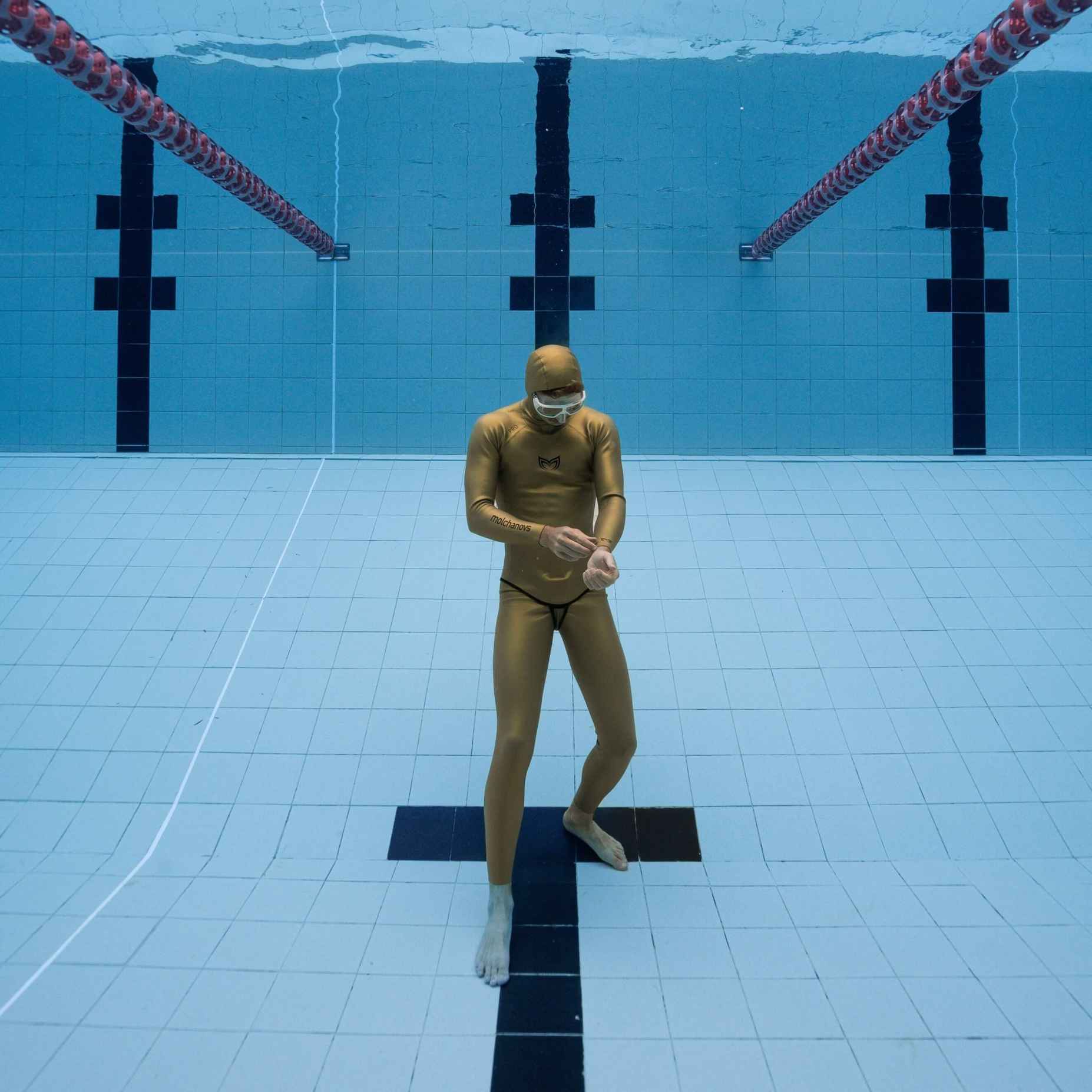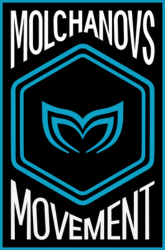Molchanovs Athlete Interview: Maria Antonia Vergara from Panama

From her earliest memories, Maria Antonia Vergara was going to the beach armed with a mask, snorkel, and fins, driven by a deep-seated passion to explore the vibrant reefs of Panama.
Then, in 2017, a trip to Southeast Asia changed everything. Maria Antonia made her way to Tioman, Malaysia, to do a Level 1 freediving course. That first course not only ended up being canceled - she also received the news that she didn’t get a scholarship for a Master’s program in the UK. Since life suddenly opened up for her, Maria Antonia made the decision to stay put and become a SCUBA Divemaster.
On one of her days off, she finally caught up on taking that canceled freediving course, and that was it. She fell in love, and everything - her life, her perspective, and her passion - changed once again.
After Maria Antonia’s three months as a Divemaster were up, she put down the regulator and picked up a plane ticket to Panglao, Bohol, Philippines. There, she completed her Level 2 training and eventually found her way to Amed, Bali, to do an internship and instructor course at Apneista.
Today, Maria Antonia is a competitive freediving athlete and National Record Holder for Panama in all the competitive freediving disciplines. “Freediving arrived at a pivotal time in my life and has definitely had a huge impact on my lifestyle, my career, everything,” she told me.
Maria Antonia’s most recent competition at the AIDA TROPICS AMED by Evolution Freediving earned her the final two Panamanian National Records that were missing in her arsenal: DYNB and DYN. I sat down with her to find out more about her competition preparation, the most joyful and difficult parts of her training, past pitfalls, and future goals.

KZ: Congratulations on your recent national records for Panama! What was preparation for this competition like, and how did you feel before and after your dives?
MAV: Unfortunately, I had an ear infection, so I wasn’t able to train as much as I’d hoped (it was something like 8 sessions planned, and I was only able to do 4). But, a few days before the comp, I did 100m (328ft) in bifins and a monofin, so I thought to myself, “OK, I can do it… the plan is 100m, a push, and see how it feels.” Knowing I could do 100m regardless of how I felt just gave me the confidence for the day of the comp. Mind you, I hadn’t done 100m since my instructor course in 2018, so I was definitely a little nervous. But I also told myself, “You have to do this, you’re an instructor.” Also, I had never used my monofin in the pool, so I was just nervous about the turns.
I did bifins on the first day and came up at 109m (358ft). I followed the plan, did the 100m and turned, and came up clean. It wasn’t a super fun/comfy dive, but I knew the NR was around 97m (318ft), and I had done 100m for my instructor course, so I just wanted to do more than that.
That evening, I realized that the overall DYN National Record was 117m (384ft), so my plan of ‘100m and a turn’ changed to ‘125m (410ft) and a turn.’ It was an internal conversation of just recognizing my ego and letting it take over because I knew my body could do it. The monofin dive the next afternoon went well - I definitely pushed it more than in my bifins day, but having the experience from the previous day allowed me to be aware of my body better, so I knew I could push a bit. I had a friend who is great at coaching, so I felt super confident that if I pushed a bit, I would have someone doing the coaching job right so I could have a good surface protocol. I made it to 125m and pushed, so I was very happy.
Finishing the comp meant I officially had all the national records for Panama in both pool and depth. I know the numbers may not be super impressive, but it’s a great start, and I hope it inspires people in my country to give it a try, too.
It makes me wonder what I could do if I actually trained pool.
KZ: I hope you get a chance to do more! Now, can you walk me through the mental preparation required for a long dive? How do you manage fear and stay focused underwater?
MAV: For this last comp, my coach Vitomir messaged me a few days earlier after my last training session. “You need to prepare yourself for the worst. A comp dive can be horrible, BUT you know you can do 100m in every possible way because you just did it and did it twice. Sometimes, you will start, and contractions will come right away, and it will be hell, but it doesn’t concern you. Not your business. Ignore it. Get into your nidra mindset. Your target is 100m, and you know you have it even dead tired. When you turn (and it's very important to make the turn and start kicking), then you start thinking about things, you turn on your mind.” So I just had those words very present and knew I had it in me to make the dive.
For a deep dive, I just ask myself, “What would Bobby do?” Bobby is a great friend and a deep diver, and he just tells me, “If you can equalize, keep going,” and that’s just what I do! Obviously, if I’m feeling great discomfort or something is way off, I’ll turn. But in general, it's a way of checking in with myself and really being aware of what I’m feeling and reminding myself 'I’m OK' and 'we got this.'
I have never felt fear on a dive, and it’s not something I like to associate with. Until last year, my biggest problem was just my mind getting in the way, being busy and unfocused. But since last year, I feel I have reached a new level of concentration for my dives that I am very happy about.
I am naturally someone who plays on the safe side, which is why I like training under a coach who knows how and when to make me push and extend my limits.
For competitions, I always like to listen to a yoga nidra session before going into the water. Although my heart beats faster with the countdown (I'm working on it), being in a competition setup just makes me feel so focused on my dives that I think I enjoy them the most.
KZ: Excellent! And what's the most challenging aspect of freediving training for you, both physically and mentally? What about the most enjoyable?
MAV: The most challenging is being able to find depth regularly! When I am in Amed, it's great and easy, but when I am back in Panama, it is hard for me to find enough depth or a training partner, as well as just the time and the energy to train. I am teaching a lot when I am home, and life just gets very busy, so even gym or pool sessions get trickier. It would be the dream to just get paid to be an athlete and completely focus on my training; I’d be curious to see what I’m capable of!
Mentally, I think it’s being able to disconnect from other things in life and just focus on what you’re doing those couple of minutes before the dive. At least for me, once the dive begins, my mind does not wander and is 100% present. It’s the breath-up that can sometimes make my mind go halfway across the world, which is why I actually enjoy having a countdown.
The most enjoyable part is definitely the community around freediving. It’s lovely traveling the world with friends to do something we’re all passionate about. The healthy lifestyle is definitely a plus for me: going to bed early, waking up early, being aware of my body, eating well, and not drinking. It might sound very boring to most people, but it’s a lifestyle I enjoy.

KZ: That definitely sounds like a plus. Can you share a memorable or unique experience you've had while diving?
MAV: On the line: there was a day in Tenerife a few years ago. It was cold (wearing a 5mm and still cold), so I was only doing one warm-up - but it was the most perfect warm-up ever, and I just felt SO ready for my dive. I don’t even remember the depth…something around 55m (180ft) perhaps, but it was just the most delicious, beautiful, perfect dive. Nothing particular about it, but it was just ALL the good feels…I think you know what I mean.
As for fun diving? One word: orcas.
KZ: Orcas, wow! Now, let’s flip the script: have you ever had a freediving "fail" or a moment that didn't go as planned? How did you handle it, and what did you learn from the experience?
MAV: So far, I don’t feel like I have. I mean, yes, there are early turns and training days that don’t go as planned, but I try to be very honest with myself. If the plan for the day just isn’t going to work, I adapt and change the focus to at least try to make it a good session.
For example, last year, I had my first and only samba. It was a repeat dive from the day before to 60m (197ft). My PB was 64m, and having done it the day before, I felt very confident, but then came the samba. On my next training day, my plan was to do 55m (180ft) with my monofin, but in my warm-up, I realized I was way more nervous than I expected. I changed the plan: instead of going straight to 50m (164ft), I did 35m (115ft), 45m (148ft), and 55m that day. The goal was accomplished, but I just took a different direction, being more gentle with myself.

KZ: That’s really the key, isn’t it? So regarding gear, what are some must-have Molchanovs pieces in your gear bag when you’re training?
MAV: CB2x Bifins, A6063X Nose Clip, PRO Lanyard (I love the heavy carabiner) and most importantly, the monofin blade protector! If you own a monofin, it is a must-have! I’ve seen monofins crack from just being on a boat hit by the wind or riding on a scooter and I feel super nervous without it when I’m driving through Bali.
KZ: Agreed! Any additional stories you'd like to add before we finish up?
MAV: Currently, there is no one else competing from Panama, and my goal is to grow the local community, travel with my students to train in new locations, and compete, but mainly share with them the community aspect of freediving. It is lovely to see that in the Americas, there are more and more schools and instructors. I’m in touch with dive shops in Costa Rica, Nicaragua, and Colombia, and I am super excited to be spending more time in Panama to continue networking and seeing how we can grow the sport in the region by working together.
Check out Maria Antonia on social media to follow her on her freediving journey!
Instagram: @marianto_v and @panamafreedive




Leave a comment